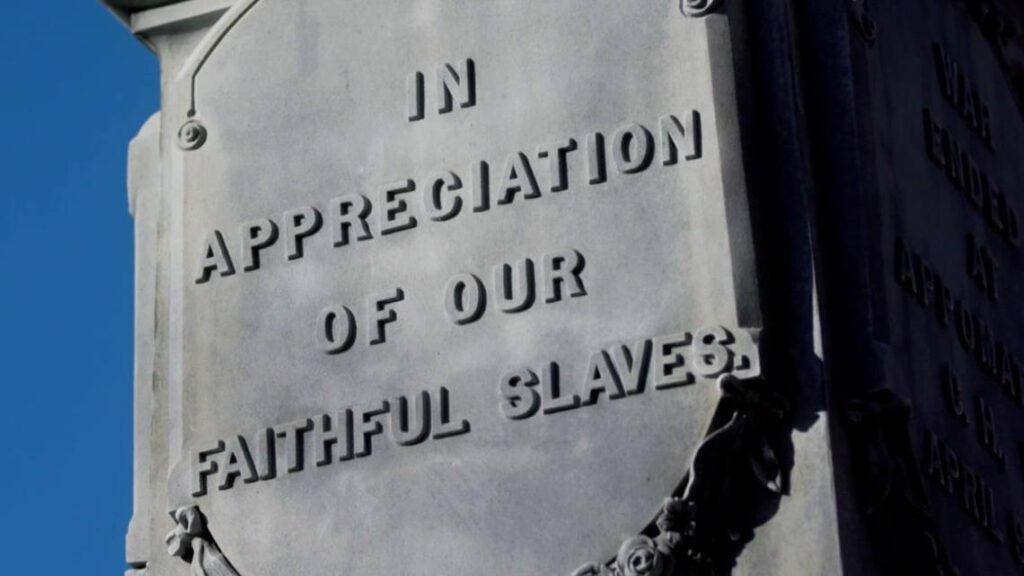Plaintiffs, including Sherryreed Robinson, challenge a Confederate monument in northeast North Carolina for racially discriminatory government speech.
TYRRELL COUNTY, N.C. — Sherryreed Robinson raises her daughter in the same Tyrrell County home where she grew up: a house that once belonged to her grandmother, overlooking acres of open land.
Now, Robinson is one of several plaintiffs who filed a federal lawsuit against a Confederate monument that stands in a public square in downtown Columbia. The plaintiffs, who include Robinson, Joyce Sykes Fitch, Mark Mixon and Adriana Blakeman, are collectively “The Concerned Citizens of Tyrrell County.”
The statue features a Confederate soldier standing at attention, with the names of Confederate fatalities etched into its base. On the back, one line is inscribed: “In appreciation of our faithful slaves.”
The lawsuit argues that allowing the monument to remain on government property constitutes “racially discriminatory government speech.”
RELATED: Future of Confederate statues in NC still complicated by state law
Tyrrell County officials filed a motion to dismiss the lawsuit in October. But just last week, U.S. District Judge James Dever III denied that motion in part, allowing the claim under the Equal Protection Clause to proceed.
In his ruling, the judge found that the monument’s inscription plausibly reflected a racially discriminatory intent and had a disparate impact, criteria established under Arlington Heights v. Metropolitan Housing Development Corp.
“A lot of people don’t know what’s on the statue, but a lot of people will say ‘just get over it.’ But unfortunately, those times in the past, for people of color, it sticks with you,” Robinson said. “Whatever happens, it’s an ancestral thing.”
According to the case docket, attorneys representing the Tyrrell County commissioners argue that the 2015 North Carolina Monuments Law prevents local officials from removing or altering the statue. They also contend that Robinson and her fellow plaintiffs failed to prove discriminatory intent on the county’s part.
Robinson, however, rejects the idea that the statue is merely a tribute to veterans.
“From a family full of veterans, I respect veterans across the board,” she said. “But it’s not about veterans, it’s history and the future.”
Reporter Alex Littlehales spoke to Robinson and other North Carolina residents in March regarding the history and future of Confederate statues in the state. Watch the full video below.


